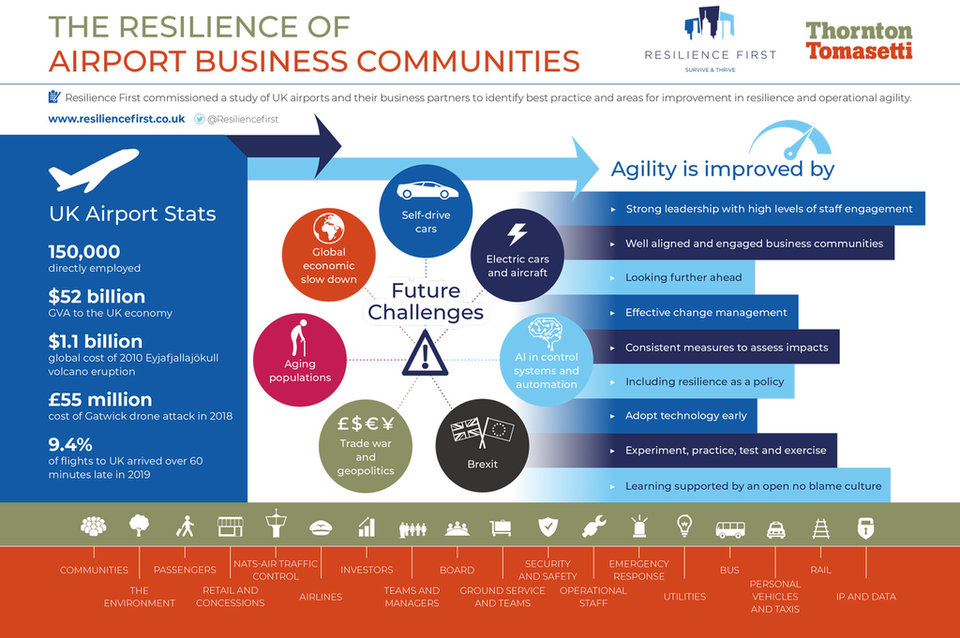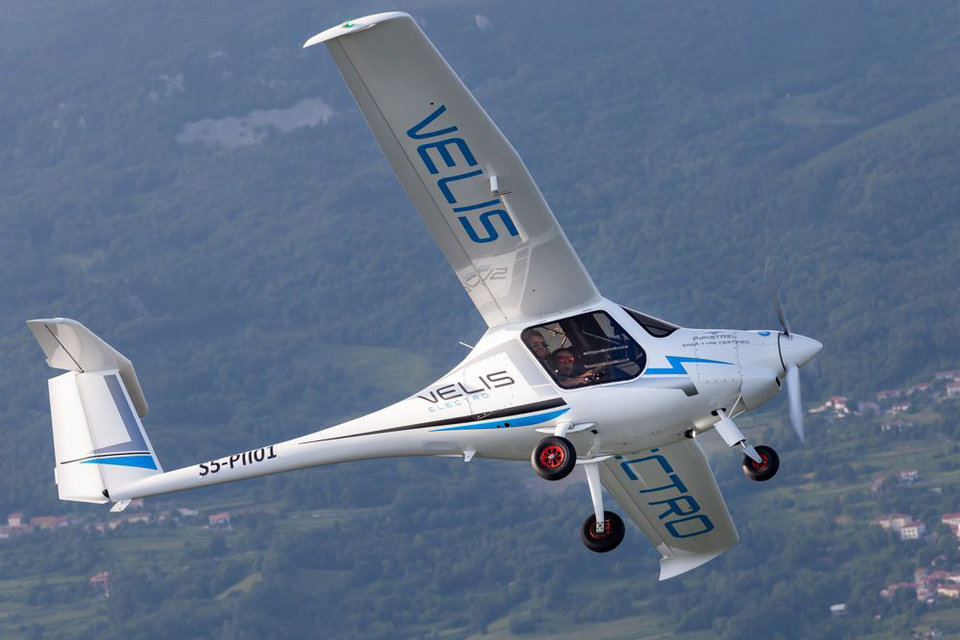Environment
Could the Covid-19 outbreak prompt a sustainability reset in aviation?
As the aviation industry grapples with recent events, there is an opportunity for change. Andrew Tunnicliffe talks with the CEO of Resilience First, Robert Hall, about how the potential to usher in a new age of sustainability rests on the aviation industry resisting the temptation to fixate on cost cutting.
It would be easier to list the countries to not have enforced any sort of lockdown – and more relevantly travel restrictions – in the wake of the Covid-19 pandemic. From New Zealand to Dubai, Italy to Peru, movement was restricted as the numbers of cases and deaths rose. However, the next and already emerging story is its impact on global economic health and industrial sectors.
The aviation industry is arguably going to be one of the biggest casualties of the economic wave. “The legacy [of Covid-19] is likely to be profound,” says Resilience First executive director Robert Hall. “Unlike many other systemic threats, the pandemic has affected the demand and supply side of commerce simultaneously and universally. The impact can be expected to last for years and may require a radical change to established business models.”
However, Hall adds that the aviation industry will be more severely affected by the decline in both business and leisure markets, no matter if they lie eastwards or westwards, than perhaps any other sector.

Resilience First executive director Robert Hall. Image: Resilience First
Image:
The aviation rebuild
UK-based Resilience First is a membership organisation which aims to improve urban resilience for business communities around the world. It recently hosted a webinar of global aviation experts to discuss how the sector can begin to operate in the shadow of Covid-19 and has produced a report titled ‘Agility Within Airport Business Communities’.
It’s a daunting challenge: figures from the International Air Transport Association in mid-April suggested the industry could lose $314bn in 2020 alone, with airlines grounding their fleets and announcing job losses already in the thousands.
The magnitude of those challenges was summed up by the head of the UK’s pilots’ union, the British Airline Pilots’ Association (Balpa). Calling for no knee-jerk reactions, General Secretary Brian Strutton recently said: "Government has not recognised the crisis in aviation and has not done enough to prevent what is now happening, a death spiral that could severely damage UK aviation.”

Statistics from a recent Resilient Airports study. Image: Resilient Airports
The UK isn’t alone, the global industry is suffering one of the biggest disasters in its history. “The crisis is severe,” says Hall. “Countries that cover 98% of commercial air passenger revenues now have restricted travel and minimal demand. Consequently, the in-service fleet now represents just over a third of the global inventory of aircraft and the majority of airline fleet groundings could far outlast the worst period of the health crisis.”
Hall estimates aircraft fleets will be at least 10% to 20% smaller in the near term, and may take over five years to recover. He says the sector faces two distinct challenges: what to do with a surplus fleet of aircraft and staff during the “slow climb from the bottom of the ladder” while markets reconstitute themselves; and how to reconfigure or adapt the remaining fleet and operations to operate with new technologies.
The majority of airline fleet groundings could far outlast the worst period of the health crisis
Will the sector evolve?
Despite what you may expect, the overwhelming message from the webinar was a positive one. Attendees called on the industry to work towards a sustainability reset, suggesting the crisis provides a unique opportunity to reset to a more sustainable model that meets the demands of the climate emergency.
Whilst acknowledging the difficult times ahead, Hall says the pandemic presents the entire industry with a chance to rethink its operating model and make sure it is investing in technologies that can enable it to meet emissions targets and create a sustainable future for itself. “This will vary from the deployment of electric and hybrid aircraft to new airport parking regimes to contactless passenger processing,” he says.
The risk is, however, that this opportunity may be missed and perhaps even result in a reversal of the work the industry has already done to tackle climate change, as companies shift their attention to confronting the impact of Covid-19. “Efforts to get back in the air could quickly allow the golden opportunity of reform in the sector to be missed or squandered,” warns Hall.

The Pipistrel Velis Electro - the world’s first fully electric aeroplane, according to the company – received certification in June. Image: Pipistrel
It is a concern shared by Strutton who accused the UK aviation sector of opportunism, saying it had deliberately exploited the situation by cutting jobs and reducing pay in the wake of the crisis. “Balpa will not stand by and watch the industry crumble – or allow airlines to use this as a chance to make unfair redundancies, or make unnecessary reductions to terms and conditions,” he said.
Whether that was a fair accusation is open to debate, but it does highlight the challenges air operators are facing. “Operators can be expected to use the crisis to reconsider and accelerate tough strategic decisions… Airlines and operators that survive the crisis are unlikely to be able to sustain the same levels of employment,” says Hall. They will be looking to reduce costs and limit, wherever possible, the long-term impact of the pandemic and subsequent dramatic fall in passenger numbers. Hall believes the result might even see the likes of B747s and A340s taken out of service early because of their higher running costs.
“The consequences of mass travel bans or restrictions will impact across a broad spectrum of the economy, ranging from manufacturers and suppliers to tourism and hotel interests,” he continues. Those challenges will need to be addressed but the worry is they will take centre stage, leaving climate change to languish further down the priority list.
Efforts to get back in the air could quickly allow the golden opportunity of reform in the sector to be missed or squandered
Grasping the climate change opportunity
Perhaps one way to stop this is to encourage stakeholders to honour their commitments on climate change through government pressure. In an effort to survive, some operators have already sought financial support. Hall believes many of those arrangements will include environmental elements.
“Air France, for instance, has been told either to scrap domestic routes that compete with high-speed trains or to forfeit taxpayer assistance,” he says. “However, cost cutting in order to survive should also allow the transition to thriving as part of a sustainable agenda.”
Hall believes the opportunity of a crisis like Covid-19 is to instigate change at a pace considered unimaginable before or otherwise lasting years. “The key will be to identify what is worth saving and building upon and what is worth discarding or changing for the better. One thing is certain, we will not be returning to the status quo ante – no matter how optimistic,” he opines.
During the webinar Paul Everitt, CEO of ADS Group, drew attention to the success the industry has already had on climate issues, saying that before the crisis the sector had a clear strategy: “Continuing to improve our existing products, speeding and introducing more sustainable aviation fuels, and investing in bringing forward the step-change technologies which will allow us to really get to grips with the 2050 target [for net-zero greenhouse gas emissions].”

He encouraged stakeholders not to ease back on that work, forgetting that combating climate change would remain a high priority for governments around the world, despite the current focus on the pandemic.
“Whether the legacy, only truly judged several years hence, is positive will be determined by how the industry grasps the forces of change behind this and the larger, existential threat of climate change coming down the runway,” Hall comments, adding the response to Covid-19 and how climate change is addressed will shape the future of the sector.
“If we fail to grasp this opportunity and respond with knee-jerk measures to get back to business as usual, and fail to rise to the much larger existential challenge of climate change, then we will be in a worse position to deal with the decade ahead,” Hall concludes.
The key will be to identify what is worth saving and building upon and what is worth discarding or changing for the better